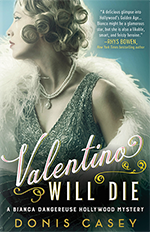On April 14, I did a mystery writers’ panel under a tent at the Arizona Book Festival in downtown Phoenix. It was a beautiful day, as it usually is in Phoenix this time of the year, but our panel was late in the day, so the crowd wasn’t as big as it might have been. Even so, we had a fair little group attend our event, as we noted afterward, no one fell asleep. We judged it to be a success. The panel members were Jon Talton (David Mapstone Mysteries), Elizabeth Gunn (Jake Hines Mysteries), Betty Webb (Lena Jones Mysteries), My Humble Self (Alafair Tucker Mysteries), and James Sallis, who has multiple novels, hundreds of short stories, and thousands of poems to his credit. His latest novel is Drive, which is actually a novelette/noir-prose-poem which has been optioned for a movie by Hugh Jackman. He also teaches creative writing. Needless to say, his insights on writing were well thought out and beautifully articulated, and perhaps a bit daunting to at least one of the other panel members.
I may have mentioned in a previous post that I’ve been working very hard on Alafair Mystery #4 since the first of January, and it has seemed to me that it has been more difficult this time to work out some of the plot problems. One of my difficulties has been with the beginning of the book. I try as hard as I can to have a really good opening scene in my novels, and though it wasn’t bad, I hadn’t been satisfied with the opening of #4. In my last post, I neglected to add that after I got home from my weekend with J.A. Jance et al in Tucson, I had soaked up so much writerly creativity that I woke up the very first morning with the perfect beginning sentence fully formed in my mind.
This odd phenomenon has happened to me before (and actually since) with my writing. I’ll struggle and struggle with a problem until I give it up and move on to something else. And then the muses do their stuff and send me the answer out of nowhere. When this happens, I often find myself thinking of Geoffrey Rush’s theater-owner character in the movie Shakespeare in Love. Just as things look irretrevably messed up and hopeless, he’d say “It’ll all turn out all right.” And his companion would ask, “But how?” “I don’t know,” he’d reply. “It just always does.”



More Places to Go
Donis on Facebook
Type M for Murder